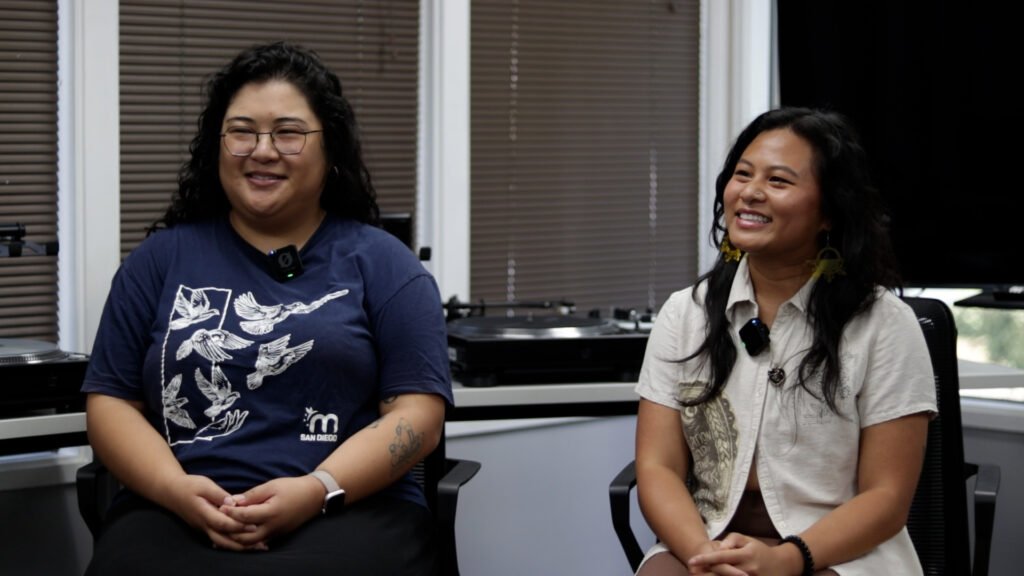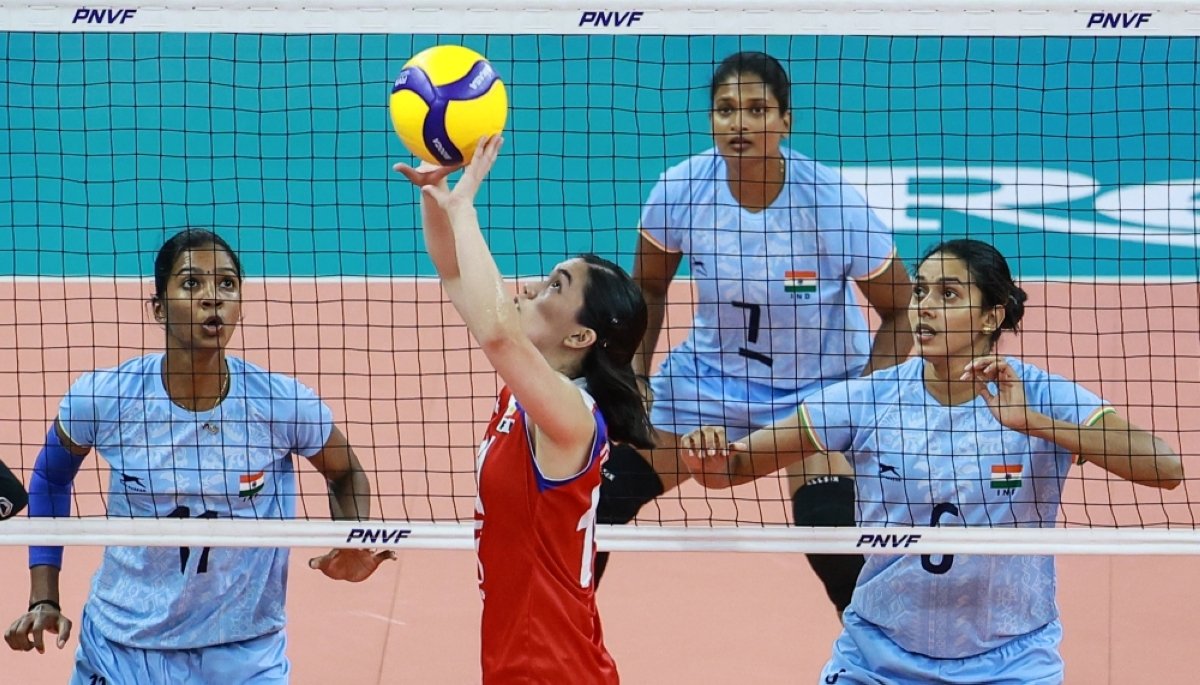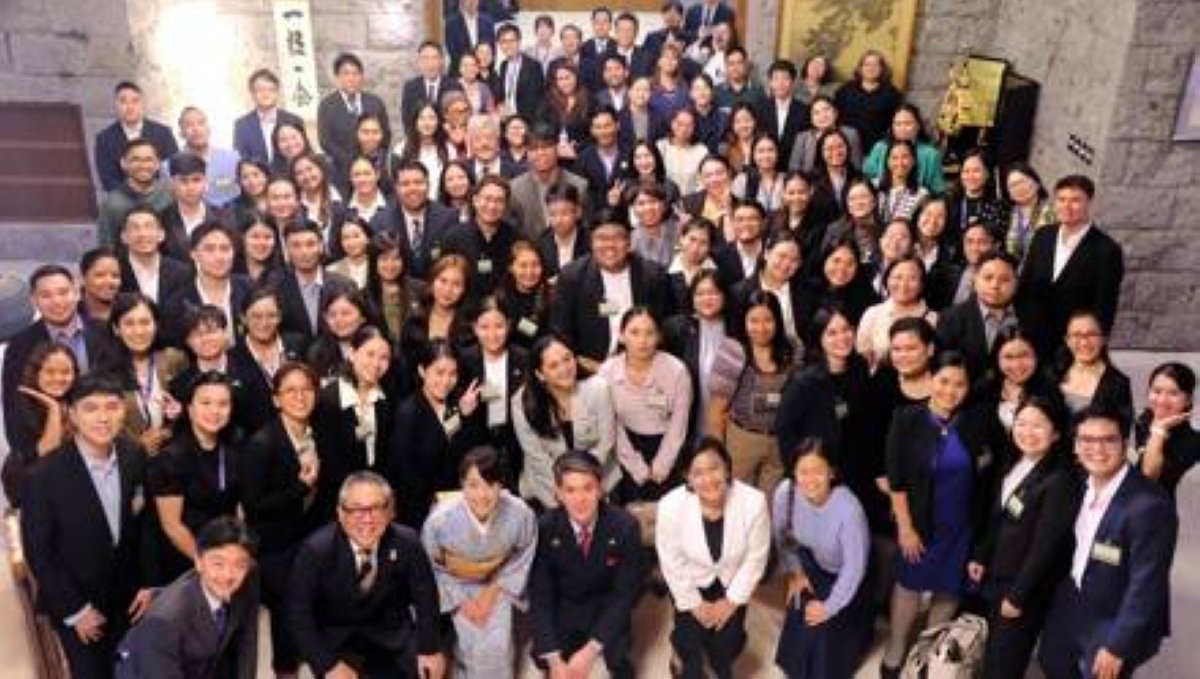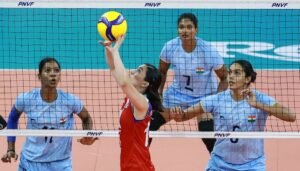A community organization in Chula Vista is using the power of music.
Malaya Movement SD, the local chapter of a national organization that advocates for migrant rights in the Filipino community, is hosting “Sounds of the Movement,” a four-part “anti-fascist” music series inspired by the 1973 album “A Grain of Sand.”
The series includes a documentary film screening, a listening session of the album, a songwriting workshop, and a song-share potluck to engage with South Bay’s Filipino community. The final event of the series will take place on August 2. The album at the center of the series deals with themes of imperialism and migration, and is considered to be the first album of widely recognized Asian American music.
inewsource sat down with Malaya Movement SD chapter coordinator Anna Rapada and Willa Marj, a local musician who is heading the music series, to discuss Filipino identity in the South Bay.

What is Malaya Movement SD, and what do you do as an organization?
Rapada: Malaya Movement San Diego is a chapter of Malaya Movement USA, and we’re a national organization of individuals and alliances that are fighting for true democracy, sovereignty and human rights in the Philippines. And as Filipino Americans, our issues with our struggles in the Philippines are very much linked with the people back home. So we’re really just here to amplify those stories and voices, and using the music series as a way for us to really show those stories, as well as the Filipino community here in San Diego.
How did each of you get involved with Malaya?
Marj: So for me, I would say my political consciousness grew in college, and I went to school up in (Orange County). So when I was done with school, I came down here, and I really felt like I wanted to get more involved with politics, and also my Filipino community.
Rapada: I got involved because my middle sister was involved with Anakbayan, and she shared with me a lot of the education that she learned through the organization, a lot of Philippine history, like why are there so many Filipinos here in the U.S. and San Diego. So through her sharing, it got me interested in wanting to get involved in the community, as well as learn more about why are so many people here in the U.S.? What are the issues that make people migrate here?
Malaya is currently hosting a series called “Sounds of the Movement.” Where did the idea for this series come from?
Marj: As a musician and artist myself, I actually heard of this album, the one that we’re studying in this volume, “A Grain of Sand” back when I was in college. And I would say that album really sparked my interest in organizing and cultural work in general, that’s where I learned what cultural work was. And as an artist, that was my entry point, and my connection to, like, “Wait, this can be my contribution to the movement.” So I developed this series because I just wanted to share this album with other people. I think that everyone should listen to it, just because there’s so many parallels between the time it came out and now.
When it came out in 1973, there was a lot of civil unrest, and there was a lot of anti-war sentiment and a lot of attacks, a lot of attacks on immigrants. So I felt like there was a lot of parallels there that we could draw to now.
This series and the Malaya movement in general is anti-fascist. How would you define fascism?
Rapada: Fascism is really a tool of oppression by the people in power or the elite to really silence and suppress the voices of marginalized groups. And an example of how fascism is used today is suppressing the voices of migrants, detaining migrants and not using due process, which is a right that people have here in the United States. And propagating that migrants here are our so-called enemies and that’s why they need to go back, be deported back to their home country, when really, migrants have really built this country, as we’ve seen throughout our history, from the railroad system to the very infrastructure that we see. All the buildings are created by migrant workers here.


We’re amplifying South Bay.
Like our coverage? Get our community newsletter straight to your inbox.
How does Malaya SD advocate for migrant rights here in the South Bay?
Rapada: One of our main campaigns right now is the “Defend Migrants” campaign that we’ve been waging locally, as well as internationally, nationally, here in the United States, and providing education to everyone on what are our rights, what to look out for, as well as making sure that our community is safe, as well as empowering people to speak up and to not be afraid. And also understanding the roots of migration, why many Filipinos migrate to the United States, especially San Diego — which is very much rooted in the U.S. Navy, because if you look at the San Diego Bay, you’ll see a lot of naval ships. There’s a lot of health care workers that are Filipino, so really trying to advocate for our community here.
So touching on your personal migration stories, do you feel that being involved with Malaya Movement, an organization like this, has helped both of you connect with your roots?
Rapada: Oh yes, especially learning the history of the Philippines and how it’s connected to the history of Filipino Americans here has definitely helped me understand a little bit more about myself and my family background. My dad was in the Navy, and my mom was a health care worker. And seeing how those connections work here is very much related to why they moved because of the lack of opportunities in the Philippines, but then also helps me figure out if I want to continue going in the same route that my parents did, which is based on their survival, but also think about what are other ways that I can also create my own path. And I have always been wanting to help people, whether through work as a health care worker, or through community service. And being part of Malaya, I was able to really bridge that gap. As a health care worker, I’m advocating for patients — but also at the same time, outside of the medical facility, I’m advocating for their rights. I’m sharing some of the information that I learned, and also hearing from them on what are the issues that they face, and bringing it back to our organization and figuring out how we can create actions on helping people, and also pushing for more rights and for more change.
Marj: I definitely agree with Anna. Being part of Malaya San Diego has helped me connect to my roots as a Filipino. I immigrated here when I was 2 years old. I was born in the Philippines, but, moving that early, I didn’t really have many memories of the Philippines. But through Malaya, I was able to learn about the history of the Philippines and also more about my culture and meet a lot of other Filipinos. And I also think it’s so inspiring to learn about our history, because it really is one that’s rooted in resilience, and it makes me feel more empowered, too, as we wage this movement and this struggle.
The “Sounds of the Movement” series is a multi-part series, there has already been one part. Can you tell me a little bit about how that went and what the other parts are going to be like?
Marj: It’s a four-part series, and each session works as a standalone. So you’ll get something from just a tiny one, but it really is also meant to build up from each other. So this first part was a film screening where we screened a documentary about one of the members of the band who created the album. And the purpose of that one was to learn what cultural work is, and to introduce that to folks, because we are getting a lot of people who are engaging with politics for the first time. So just giving them that foundation of what is cultural work, and really guiding you through that process. And then this last session that we just had was more of a listening session.
And then after that, we’re going to meet again to share what we’ve created. It’s a song share, and also a celebration for taking that leap to try something new, and to try creating cultural work, and to be in community with each other.
What kind of outreach is Malaya Movement doing to the Filipino community to get them involved in your organization here in the South Bay?
We’ve been doing door knocking into neighborhoods where we know there’s a larger concentration of Filipinos. A lot of the communities that we’ve been integrating with is in National City, mostly because there’s a large concentration of working-class Filipino migrants — flyering in front of Seafood City, in front of the different parks where we know a lot of Filipinos gather, even working with other Filipino organizations and artists who are around this area.
So how can people get involved with Malaya Movement SD? Do you guys have any upcoming events?
Rapada: One of the events that we’re holding is a Southern California-wide “What is fascism?” event. So, bringing the local issues of different areas in Southern California and how fascism is present in those communities. So we’ll be hearing from various chapters of Malaya —from L.A., from Long Beach — and leading up to the People’s State of the Nation Address, cultural celebration and rally, which will be at the end of this month in L.A. Here locally, we’re building up to the benefit concert for the defend migrants campaign, which will be on Aug. 16. So we’ll share more information on that on our Instagram at Malaya San Diego SD. But for folks that want to get involved, they can always reach out to us via Instagram or through our email, and we’ll be happy to meet up with people. And we are trying to set up monthly orientations for folks to get to know Malaya Movement more. But also, come to our music series, come to the various actions. We’re always around the different communities, so don’t be afraid to say hi to us.
This interview has been edited for length and clarity. South Bay reporter Crystal Niebla and Audience Engagement Producer Iran Martinez Jr. contributed to this report.
Type of Content
News: Based on facts, either observed and verified directly by the reporter, or reported and verified from knowledgeable sources.











